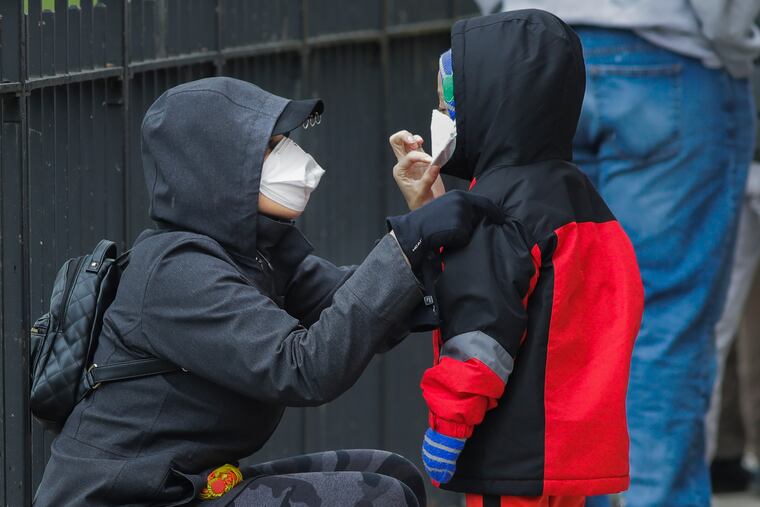15 children in New York City develop inflammatory syndrome possibly linked to COVID-19
New York City health authorities warned this week of an unusual and potentially serious inflammatory condition possibly linked to covid-19 that they have seen in 15 hospitalized children.

New York City health authorities warned this week of an unusual and potentially serious inflammatory condition possibly linked to COVID-19 that they have seen in 15 hospitalized children.
The children, ages 2 to 15, experienced persistent fever and elevated inflammatory markers, similar to a syndrome known as Kawasaki disease. More than half had a rash, abdominal pain, vomiting or diarrhea. Fewer than half had respiratory symptoms.
All of the patients described in a bulletin issued Monday were admitted to intensive care and required cardiac or respiratory support, including five who required mechanical ventilation. None have died.
Britain's national health authority issued a similar alert in late April warning of an "apparent rise in the number of children of all ages presenting with a multi-system inflammatory state requiring intensive care across London and also in other regions."
Doctors across the United States emphasized that the numbers, which represent children hospitalized in New York from April 17 to May 1, are very small. They stressed that the vast majority of children infected with the novel coronavirus have mild symptoms or none at all. They also noted that they are early in their research and that it’s possible that the inflammatory condition may be caused by something other than COVID-19.
"We have long suspected that there may be different triggers for KD based on individual genetics," wrote Jane Burns, director of the Kawasaki Disease Research Center at the University of California at San Diego, in a letter to families of children who have suffered from Kawasaki disease before. "The emergence of this new problem suggests that the new coronavirus, SARS-CoV-2, may be a trigger for some children to develop KD."
"It would be a terrible mistake for parents to worry. The chance for a child up to this point of becoming critically ill is very, very rare," said Jeffrey Burns, chief of critical care at Boston Children's Hospital.
Craig Sable, associate division chief of cardiology at Children's National Hospital in the District, said many of the children with similar illnesses described by European colleagues have recovered, but it's unclear whether they will suffer any longer-term consequences.
"The numbers are too small and follow-ups too short," he said.
Kawasaki disease traditionally affects children younger than 5 and involves inflammation of blood vessels throughout the body. There's no cure, but doctors have been very successful in using tools such as anticoagulants and antibodies to help most children recover.
Demetre Daskalakis, deputy commissioner for disease control for the Department of Health and Mental Hygiene, urged doctors seeing such cases to report them immediately.